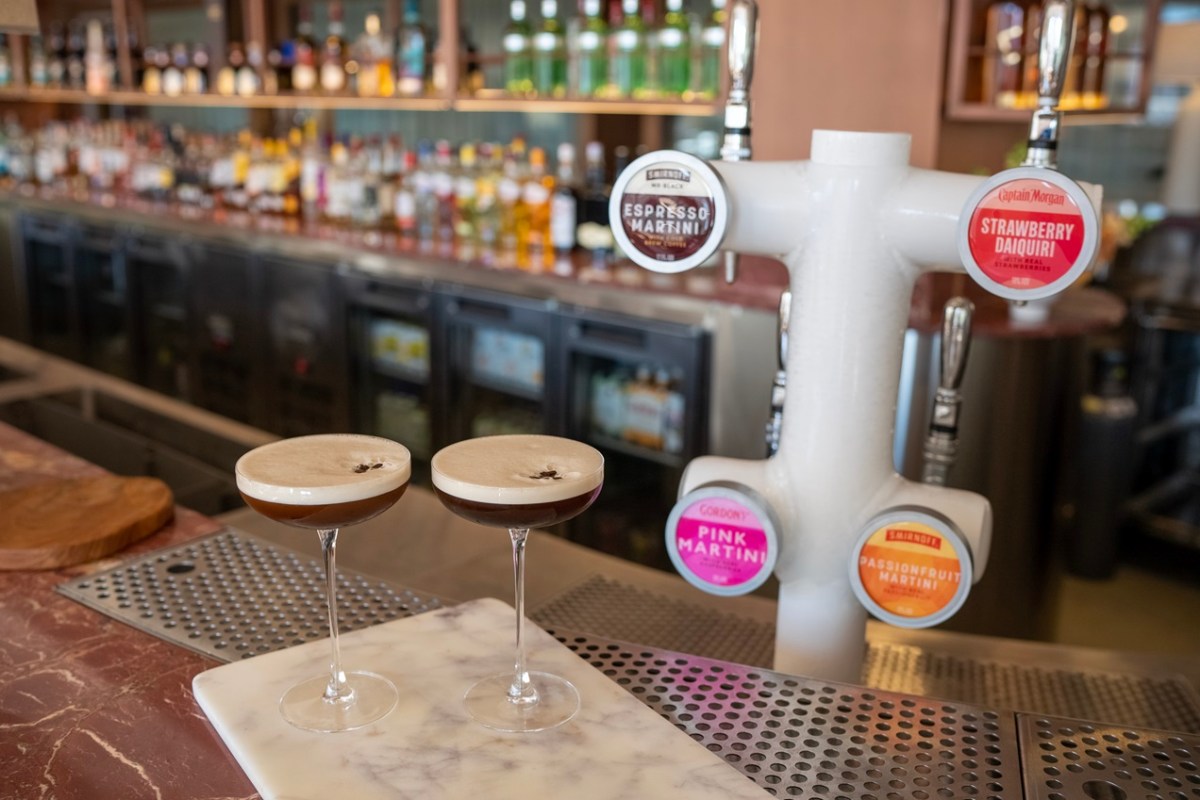Draught beverages are commonplace in the pub environment, but recent consumer trends are pointing towards an alternative draught experience as RTDs and premixed cocktails establish their share of tap space.
Consumer awareness of alternative draught offerings is rising, and new CGA consumer research has revealed that more than half of on-premise consumers have now encountered draught cocktails and mixed drinks.
While there is still significant room for on-premise penetration and consumer education, 45 per cent of consumers acknowledge an improvement in the quality of draught offerings.
This trend is especially speaking to younger generations, with 44 per cent of 18- to 34-year-olds reporting purchasing draught cocktails in the CGA by NIQ Australia’s On-Premise 2023 Year in Review report.
James Phillips, client solutions director – ANZ at CGA by NIQ, said: “Consumer awareness of draught/tap cocktails and mixed drinks isn’t in question. But their perceptions of quality present both a challenge and an opportunity to the industry.
“Brands, suppliers and operators can transform these perceptions and create a thriving environment for cocktail innovation by emphasising classic offerings and optimising the bartender influence. It’s a call to action to adapt and thrive in a consumer market and drink category ripe for change.”
Familiar flavours
CGA research found that classic cocktails and their variations are proving to be the most popular draught cocktail option on-premise, with familiarity providing an incentive for consumers to engage with this format. Perhaps it is also familiarity that is seeing established brands such as Hard Rated enjoy success in the RTD category.
In the latest edition of Australian Hotelier, Jacksons on George venue manager Paul Burnicle explained that Hard Rated has dominated draught trade at the venue, with consumers leaning into alcoholic versions of classic pub beverages.
“Hard Rated’s success stems from a nostalgia factor coupled with its drinkability,” he said.
“Cider drinkers who moved to the cocktail category are now being lured back to the draught category by Hard Rated. Hard Rated also appeals to those who are not beer drinkers and want a cheaper alternative to a cocktail or spirit mixer.”
While draught alternatives are gaining traction on-premise, there is still a large portion of consumers who are sceptical about the category. CGA insights have shown that offering tastings or free samples might help publicans to overcome consumer hesitancy about quality, and Moon Dog co-founder Josh Uljans agrees that draught is the perfect format to offer sampling and encourage category conversion.
“If you’re in a pub, it’s great to be drinking out of a schooner or pot. A lot of our attitude is embedded in rituals that have been established over a long period of time. There is a perceived freshness to the draught offering, along with speed of service and opportunity to be able to buy in rounds in a consistent format,” he said.
Nick Clark, licensee at the Shortland Hotel in Newcastle, added: “There’s not much prodding needed to get customers onto the non-beer draught alternative, it’s more a matter of keeping up with the trends. Many of our customers are happy to experiment and explore the range, it’s just up to us to keep the variety coming.”
Clean and conscious cocktails
From a sustainability standpoint, RTDs and premixed cocktail formats are providing pubs with an alternative that results in less wastage and reduced costs, and it doesn’t stop at draught products.
Northern Beaches RTD cocktail company Sophisticated Cocktail Co uses large format eco-friendly standup pouches, offering publicans a convenient and environmentally friendly solution to cocktail making.
By utilising nitrogen and an alcohol volume that naturally preserves the product, Sophisticated Cocktail Co founder Vicki Lyon says the eco-friendly approach ensures a longer shelf life compared to traditional glass bottles, and product longevity is a crucial consideration for publicans who wish to optimise waste management.
“Our ethos is all about crafting clean and conscious cocktails while minimising our carbon footprint. We recognised the need for sustainable packaging alternatives in the beverage industry and decided to take action,” she said.
“In 2020 alone, the world produced 40 billion glass spirit bottles, generating 22 million tonnes of carbon emissions. By eliminating each glass bottle, we save at least 550 grams of carbon emissions, which equates to 30 grams per cocktail or spirit pour.”
In addition to the environmental benefits, premixed and draught cocktail products can also assist publicans in addressing industry-wide staff shortages by offering bar-quality alternatives that reduce waiting times and streamline operations.
The introduction of alternative draught beverages in the pub environment allows for a wider offering of convenient serves with broader appeal, without compromising in other areas.

